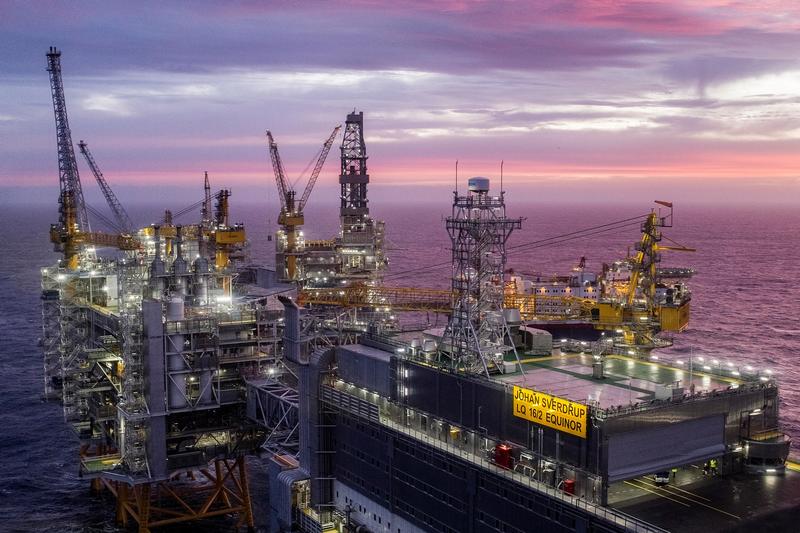OSLO – The escalation of a strike among offshore oil workers in Norway could affect production from six fields with total output of 330,000 barrels of oil equivalent per day (boepd), the Norwegian Oil and Gas Association (NOG) said on Friday.

Norway’s Lederne labour union said on Wednesday it would escalate action from midnight Oct. 4 after dozens of workers went on strike on Sept. 30 at the Johan Sverdrup oilfield, western Europe’s largest. Equinor has maintained production at the 470,000 boepd Sverdrup field despite the strike.
Workers went on strike after wage talks failed between the union and the NOG, which represents oil and gas companies.
The escalation could force a shutdown of the Equinor-operated Gudrun, Gina Krog, Kvitebjoern fields and the Neptune Energy-operated Gjoea field, NOG said.
In addition, production would have to stop at the associated Equinor’s Valemon and Wintershall DEA’s [WINT.UL] Vega fields, it added.
“The risk therefore exists that about eight percent of total petroleum production from the Norwegian continental shelf (NCS) could be lost through extending the strike,” NOG said.
London-based Energy Aspects, however, said the impact for the strike’s escalation would not be significant.
“For gas there will be almost no issue as there is so much spare capacity on the Norwegian continental shelf at the moment,” Energy Aspect’s analyst Christopher Haines said.
The six fields produce around 25 million cubic metres of gas per day, which could be easily compensated by ramping output at the much larger Equinor-operated Troll and Oseberg fields, he added.
Lederne expects 126 union members to strike, in addition to 43 who stopped working at Sverdrup on Monday after the state mediated wage talks failed.
Two larger offshore worker unions, Industri Energi and Safe, have agreed new wage deals and will not strike.
Lederne said it was seeking better financial terms for its members and wanted the offshore wage agreement to cover its members who work at a remote control room onshore.
Equinor and other oil companies have been looking into ways to remotely control production at offshore fields to reduce the costs.
NOG said Lederne’s demand fell outside the scope of the offshore wage agreement.
[contextly_sidebar id=”cRfjttWew9lza1TF4FpUPEWoCEOyYn2E”]




